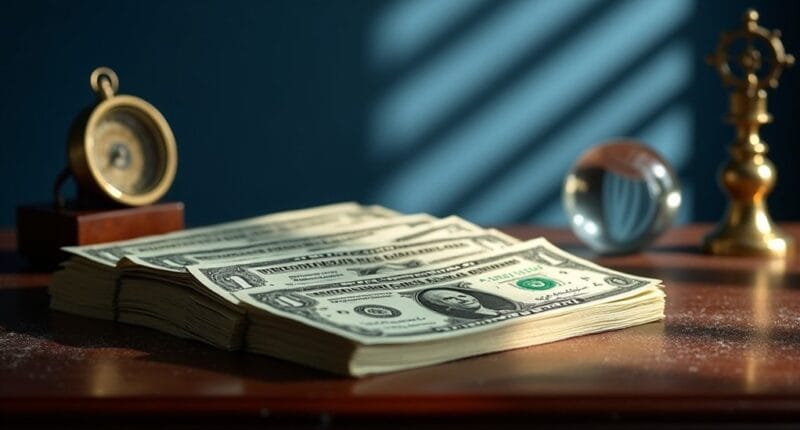Warren Buffett just parked a whopping $300 billion in Treasury bills, controlling 5% of America’s short-term government debt market. Why? T-bills are paying a juicy 4.359% yield, they’re basically risk-free, and Buffett’s sitting pretty with more flexibility than the Federal Reserve’s $195 billion position. The Oracle of Omaha hasn’t made any major moves in two years – his massive T-bill bet might signal something big brewing in the markets.

Warren Buffett just gobbled up a jaw-dropping slice of America’s financial markets. Berkshire Hathaway now controls nearly 5% of all short-term U.S. Treasury bills – a staggering $300.87 billion worth. That’s right: one company owns roughly one-twentieth of America’s entire short-term government debt market.
In an unprecedented move, Berkshire Hathaway has secured a massive 5% stake in America’s short-term Treasury market, worth over $300 billion.
Even more shocking? Berkshire’s position now dwarfs the Federal Reserve‘s $195 billion holdings.
The Oracle of Omaha isn’t exactly known for parking massive amounts of cash in government securities. He’s traditionally blasted cash as a terrible long-term holding. But times change, and apparently, so does Buffett. With T-bill yields hitting 4.359% in April 2025, these boring government IOUs are suddenly looking pretty attractive.
No crypto volatility, no tech stock drama – just pure, government-backed yield.
The numbers tell the story. Of Berkshire’s $334 billion cash pile, more than 90% is now sitting in short-term Treasuries. About $14.4 billion has maturities under three months, while a whopping $286.47 billion is parked in slightly longer-dated bills. These T-bills are particularly appealing since they’re sold at a discount to face value. Buffett hasn’t made any major acquisitions in over two years.
It’s a defensive move that screams caution – or maybe wisdom.
These investments offer ultra-safe returns, backed by the full faith and credit of the U.S. government.
This isn’t just about decent yields. Buffett’s massive Treasury position gives him incredible flexibility. If stock markets tank or amazing deals suddenly appear, he can deploy this capital at a moment’s notice. Meanwhile, he’s earning better returns than many riskier investments are currently offering. Not bad for playing it safe.
The implications are crystal clear. When the world’s most famous investor dumps nearly a third of a trillion dollars into Treasury bills, it sends a message. High equity valuations and global uncertainty have made even Warren Buffett seek shelter in the safest harbor around.
He’s fundamentally become the biggest private player in the T-bill market – larger than the Fed itself. That’s not just surprising – it’s unprecedented. And it might just be the canary in the coal mine for what’s ahead in the markets.





